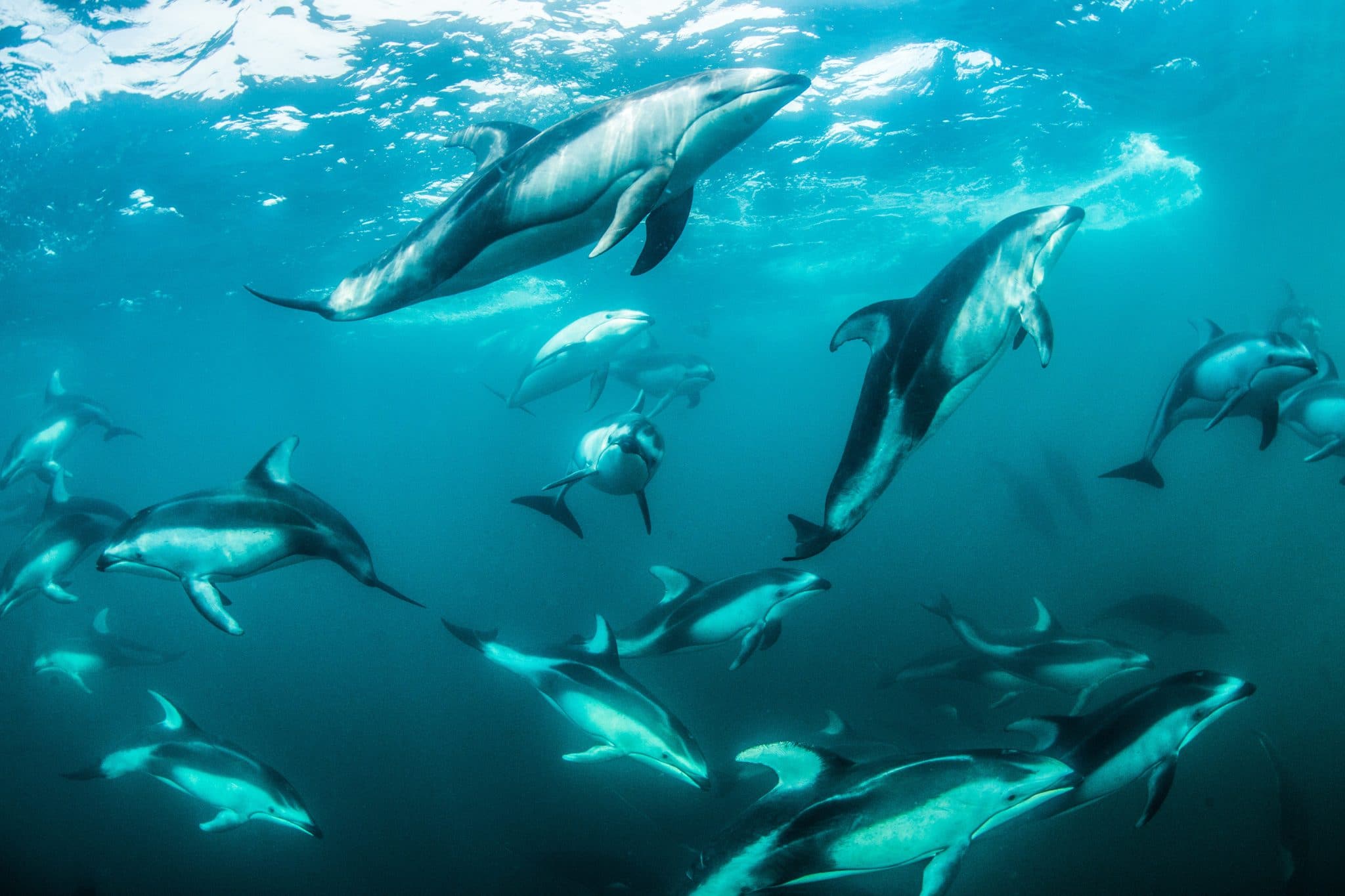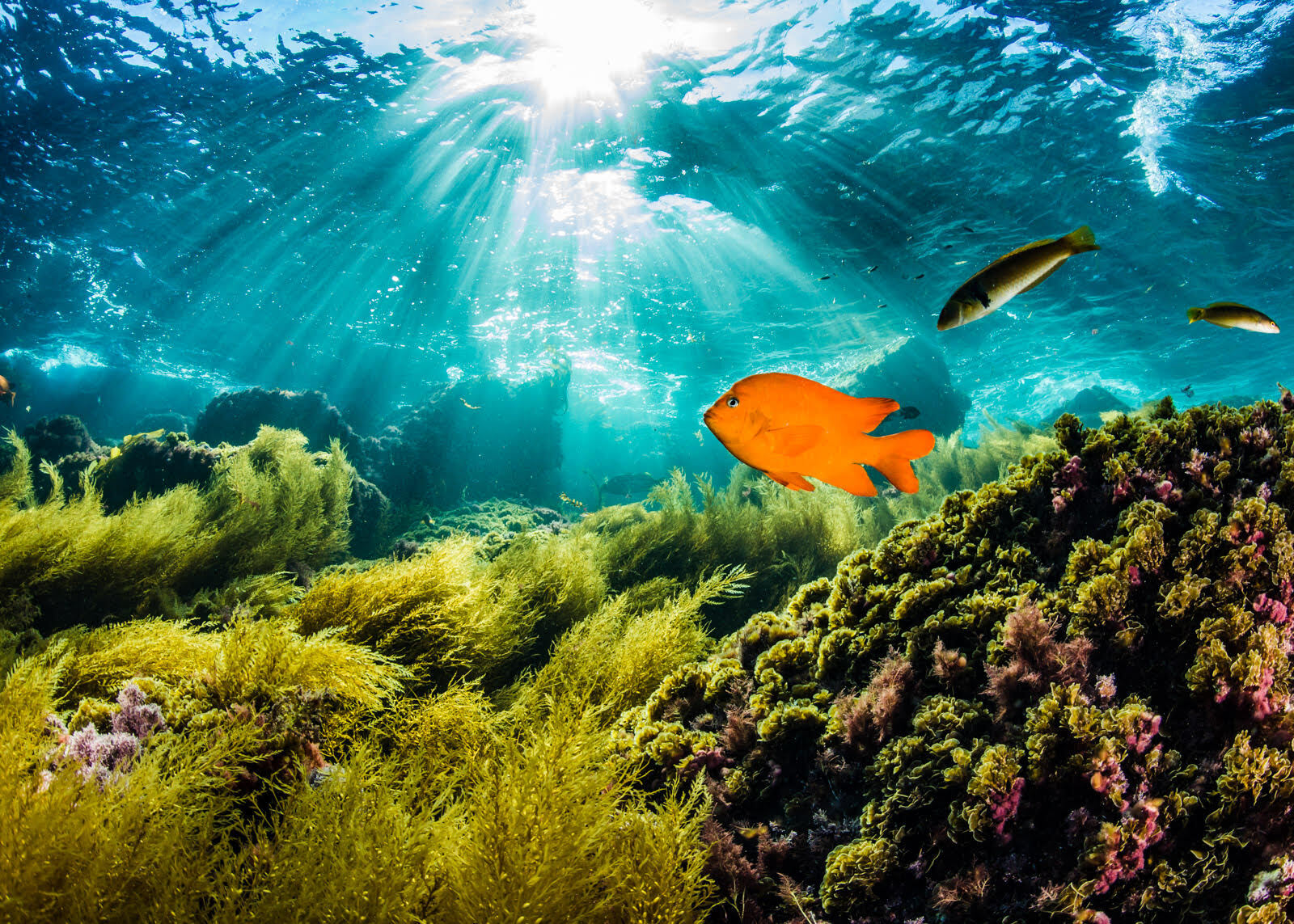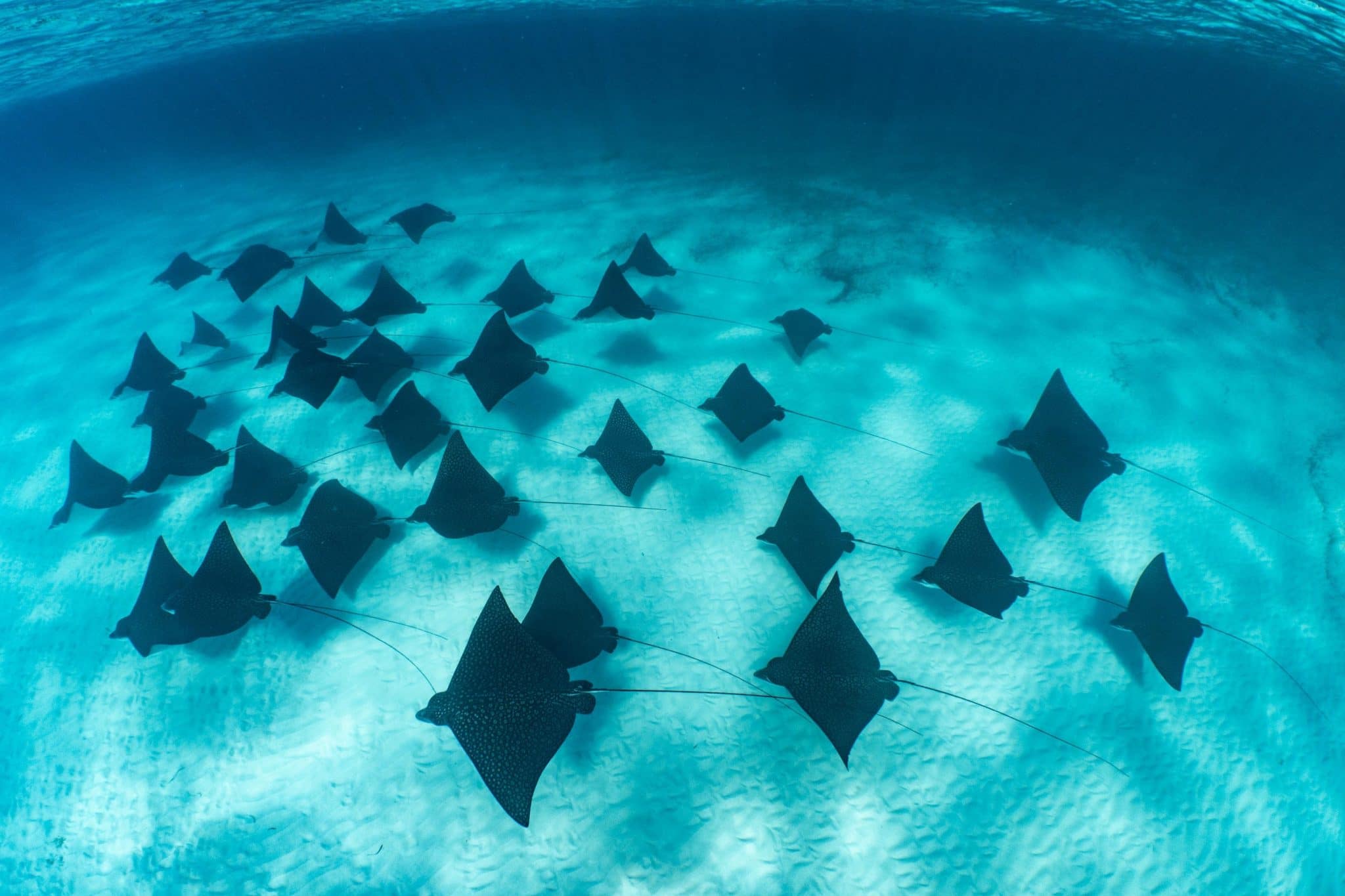Marine Life & Conservation
PADI and SeaLegacy Join Forces to Accelerate the Protection of 30% of the Ocean by 2030
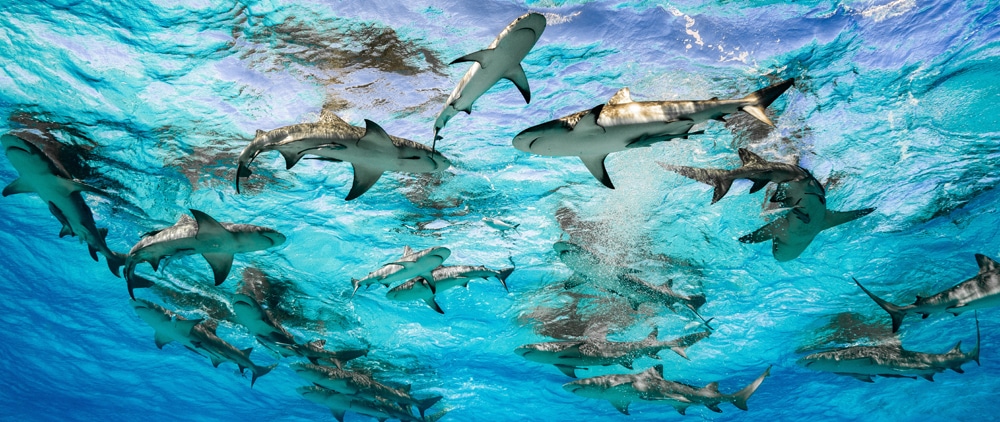
 Two of the world’s most respected marine-focused organisations – PADI® and SeaLegacy – have joined forces to accelerate much-needed ocean protection. The first initiative of this multi-year collaboration kicks off this month, with a grassroots campaign developed to spark immediate and meaningful change for our blue planet.
Two of the world’s most respected marine-focused organisations – PADI® and SeaLegacy – have joined forces to accelerate much-needed ocean protection. The first initiative of this multi-year collaboration kicks off this month, with a grassroots campaign developed to spark immediate and meaningful change for our blue planet.
The Role of 30×30 in Advancing Ocean Conservation
Scientific research indicates that protecting at least 30% of the global ocean by 2030 (i.e. 30×30) is critical to restore the health of the ocean, reverse existing adverse impacts, increase resilience to climate change, and sustain ecosystem services to humanity. But despite the clear need for increased protection, less than 5% of the global ocean is fully protected in no-take reserves.
The ocean is facing growing challenges triggering a global advocacy movement urging immediate and lasting change to protect it for current and future generations. Illustrating the power of partnerships to amplify exponential change, PADI and SeaLegacy are harnessing one another’s strengths–leveraging the power of media, storytelling, and advocacy to compel ocean activists across the planet to take action and urge world leaders to step up to protect at least 30% of the ocean by 2030.
“PADI is fueling a movement of one billion torchbearers to create ocean change, and we are thrilled to partner with like-minded organisations to scale this critical mission,” says Drew Richardson, CEO of PADI Worldwide. “Working with SeaLegacy not only allows us to rapidly grow the global torchbearer community, but also empower us all with meaningful ways to take real, positive action to protect our blue planet – and all life that calls it home.”
Global Petition to Inspire Action Amongst World Leaders
This April, PADI and SeaLegacy will launch a joint 30×30 campaign designed to generate immediate action from a combined global audience that includes millions of ocean enthusiasts, divers, snorkelers and conservationists looking for means to protect what they love.
The goal of the PADI and SeaLegacy 30×30 campaign is to urge world leaders to adopt the 30X30 target, calling for conservation of “at least 30% of sea areas globally through effective, equitably managed, ecologically representative and well-connected systems of protected areas.” PADI and SeaLegacy will be pushing for an agreement to be reached at the UN Biodiversity COP15 in the third quarter of 2022 in Kunming, China.
“In a time when so many people around the world are concerned about climate change, biodiversity loss, sea level rise, and so much more, we need to channel that anxiety into action,” says Cristina Mittermeier, president of SeaLegacy. “People everywhere are looking for hope and opportunities to have real impact, and one great way to get involved is to sign our petition to have the 30×30 target adopted at the Convention of Biodiversity.”
Long-Term Partnership Goals
With their shared 30×30 goal, SeaLegacy and PADI will work to increase meaningful marine protection around the world, including the creation and effective management of marine protected areas (MPAs) and biodiversity conservation, while collaborating with local communities and leaders on the frontlines of the climate crisis.
“The ocean offers so many of the critical climate solutions we need, and MPAs are a major piece of that. MPAs not only protect local species and ecosystems, but sequester carbon, increase coastal resilience, and revitalize local economies. We know that change is possible in this decade, and this kind of action will help us make major strides toward healing our ocean and saving our planet,” says Mittermeier.
To sign the petition, visit only.one/ocean30. To learn more about the SeaLegacy and PADI partnership, and ways to get involved, visit padi.com/conservation.
Header Image: © Cristina Mittemeier
Marine Life & Conservation
IUCN Spotlights Green Fins at Bali Ocean Days 2025, Calling for Stronger Business Model in Marine Conservation

IUCN (International Union for Conservation of Nature) Global Ocean Director, Minna Epps, has spotlighted Green Fins Indonesia along with a call for stronger business models that sustain marine conservation. Speaking at the inaugural session of Bali Ocean Days 2025 held on 7-8 February, Epps emphasised the need for sustainable financing to support and scale marine conservation initiatives such as Green Fins.

Activities earlier in the week with the Coral Triangle Center in Sanur and Ceningan Divers in the Nusa Penida Marine Protected Area shaped the IUCN Ocean Director’s message at the conference and showcase, aligning with the theme of the blue economy and impact finance to sustain marine ecosystems.
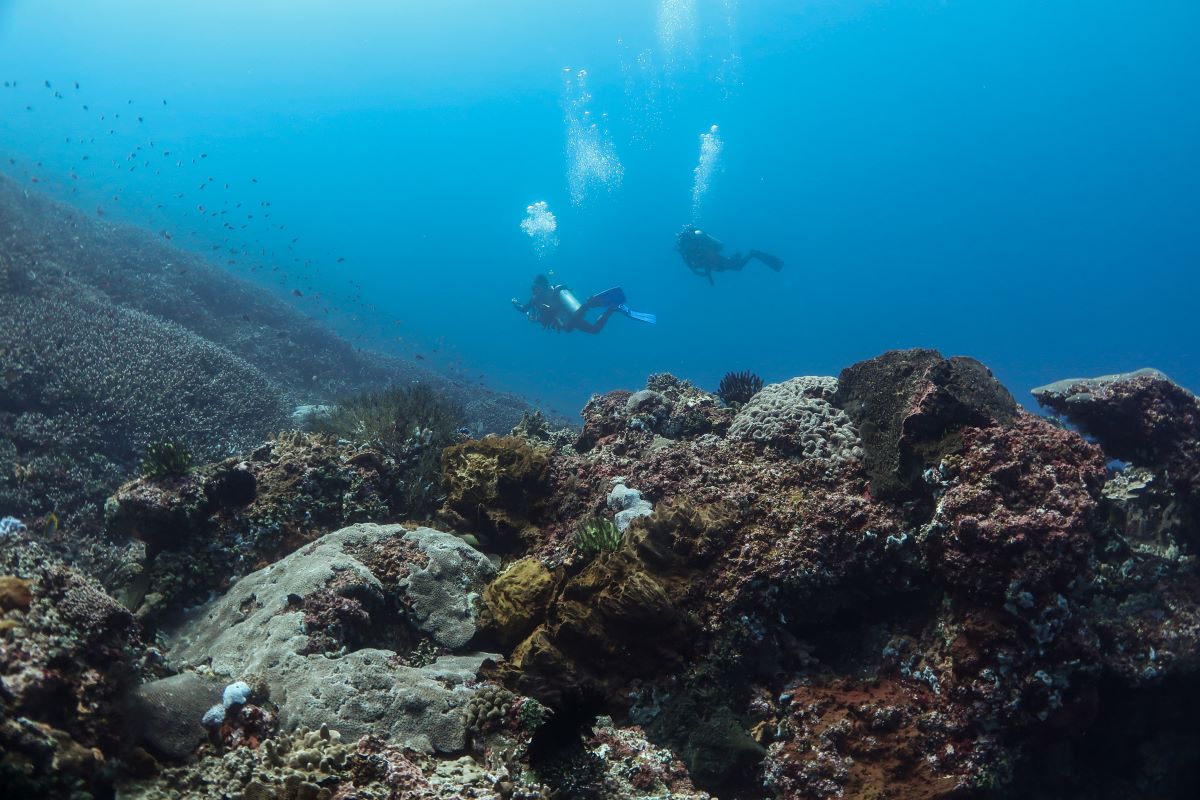
“Tourism has such a big impact on marine biodiversity, and we need it to adhere to a certain code of conduct,” Epps said. “That is why through our funding facilities, we worked with The Reef-World Foundation advancing Green Fins so dive operators can become certified with standards. But this kind of initiative has been around for a long time and it’s also a tool used to improve [MPA management], but it needs to come with a business model. I also believe in market-based instruments to evolve this programme.”

IUCN’s visit is part of their Blue Natural Capital Financing Facility (BNCFF), which supports at least 21 projects around the world, building the business case for investing in the future of our ocean.
In Indonesia, the project supported by IUCN was developed in partnership with The Reef-World Foundation, the Coordinating Body on the Seas of East Asia (COBSEA) and the Coral Triangle Center, which serves as the local implementing organisation for Green Fins. The initiative engages marine tourism businesses through voluntary sustainability certification based on the only internationally recognised environmental standards for diving and snorkelling operations. Green Fins’ activities aim to reduce negative environmental impacts associated with marine tourism activities as well as improve the management of marine protected areas.

IUCN’s promotion of Green Fins in Bali Ocean Days signals the need for greater private sector engagement in marine conservation across Indonesia and beyond.
Investors, donors, marine tourism operators and stakeholders looking to support scalable marine conservation solutions are encouraged to explore opportunities with The Reef-World Foundation, the international coordinator of the Green Fins initiative. To learn more about sustainable marine tourism and how to get involved, visit www.reef-world.org.

About Reef-World
The Reef-World Foundation is a registered UK charity which delivers practical solutions for marine conservation around the world. The charity promotes the wise use of natural resources – particularly coral reefs and related ecosystems – for the benefit of local communities, visitors and future generations. It is dedicated to supporting, inspiring and empowering governments, businesses, communities and individuals around the world to act in conserving and sustainably developing coastal resources.
Reef-World leads the global implementation of the UN Environment Programme’s Green Fins initiative, which focuses on driving environmentally friendly scuba diving and snorkelling practices across the industry globally. As such, the charity provides low-cost and practical solutions to local and industry-wide environmental challenges associated with the marine tourism industry. It provides education and capacity-building assistance to empower environmental champions (within the diving industry, local communities, authorities and governments) to implement proven coastal resource management approaches.
Visit www.reef-world.org to learn more or follow them on Facebook, Instagram and X.
About Green Fins
Green Fins is a proven conservation management approach – spearheaded by The Reef-World Foundation in partnership with the UN Environment Programme – which leads to a measurable reduction in the negative environmental impacts associated with the marine tourism industry. The initiative aims to protect and conserve coral reefs through environmentally friendly guidelines that promote a sustainable diving and snorkelling tourism industry. It provides the only internationally recognised environmental standards for the diving and snorkelling industry and has a robust assessment system to measure compliance.
Green Fins encourages and empowers members of the diving industry to act to reduce the pressures on coral reefs by offering dive and snorkel companies practical, low-cost alternatives to harmful practices – such as anchoring, fish feeding and chemical pollution – as well as providing strategic training, support and resources. By reducing the local direct and indirect pressures tourism puts on coral reefs, it helps make corals healthier and more resilient to other stresses such as the effects of climate change. Look for the Green Fins logo when booking your next dive trip.Visit www.greenfins.net to learn more or follow the initiative on Facebook, Instagram and X.
Blogs
Evolution of Manatees in Florida
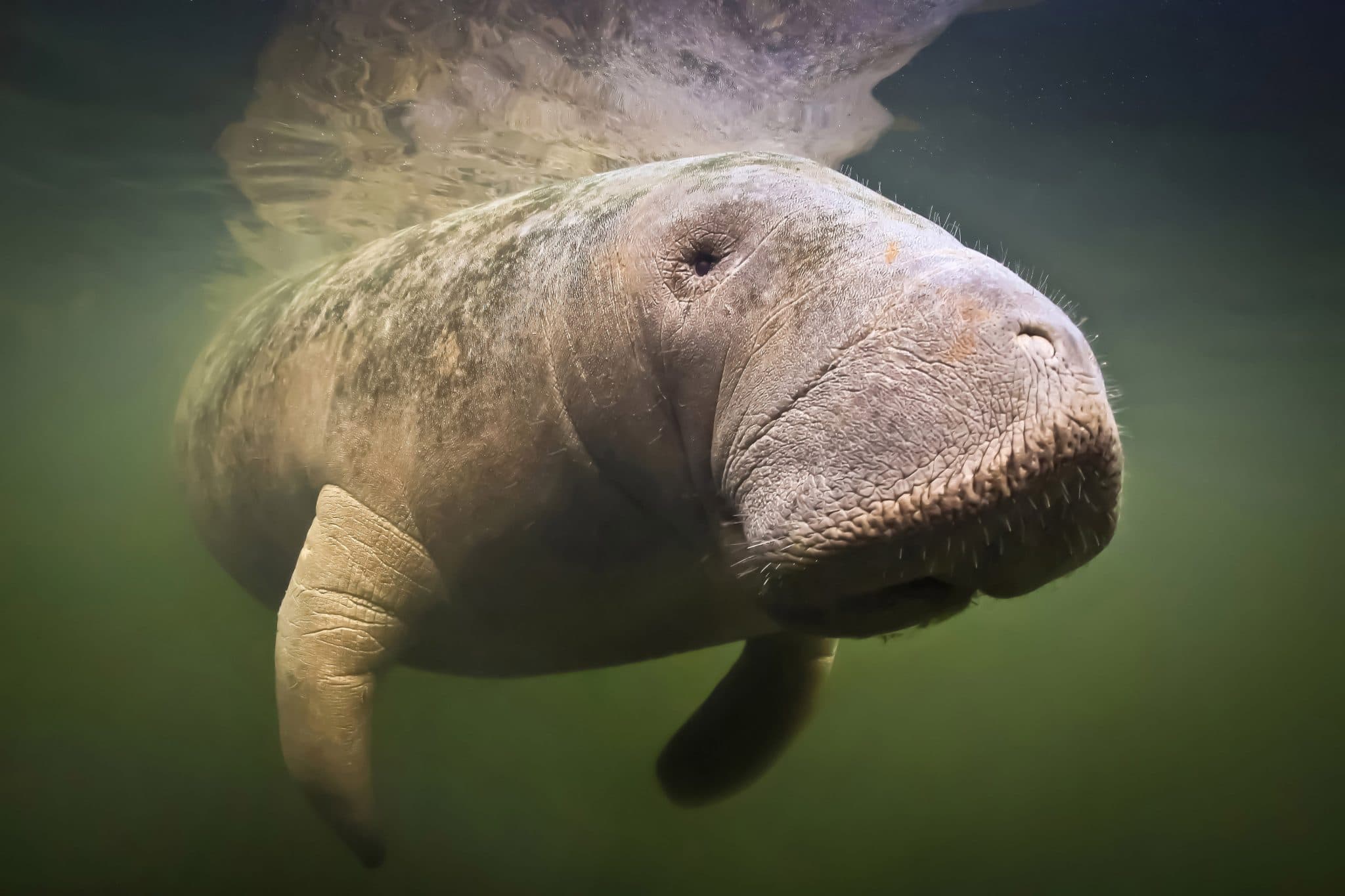
Op-ed by Beth Brady, PhD, Senior Science and Conservation Associate, Save the Manatee® Club
Recent news articles and broadcasts have claimed that manatees are not native to Florida or only arrived on Florida’s west coast in the 1950s. These claims, based on limited anthropological records, point to where manatees were historically exploited by humans and assume that a lack of evidence means manatees were absent from certain areas. However, absence of evidence is not evidence of absence—it’s like looking for stars in the daytime; just because you can’t see them doesn’t mean they’re not there. Moreover, genetic and fossil evidence indicate manatees have been present in Florida for the last 12,000 years.
The Florida Fish and Wildlife Conservation Commission (FWC), which manages Florida manatee populations, has created a manatee timeline highlighting key dates and notable information about manatee presence in Florida (https://myfwc.com/education/wildlife/manatee/timeline/). Historical records suggest that manatees have been observed in Florida as far back as the 1500s, with some details presented by the Florida Fish and Wildlife timeline aligning with evidence presented in the publication.
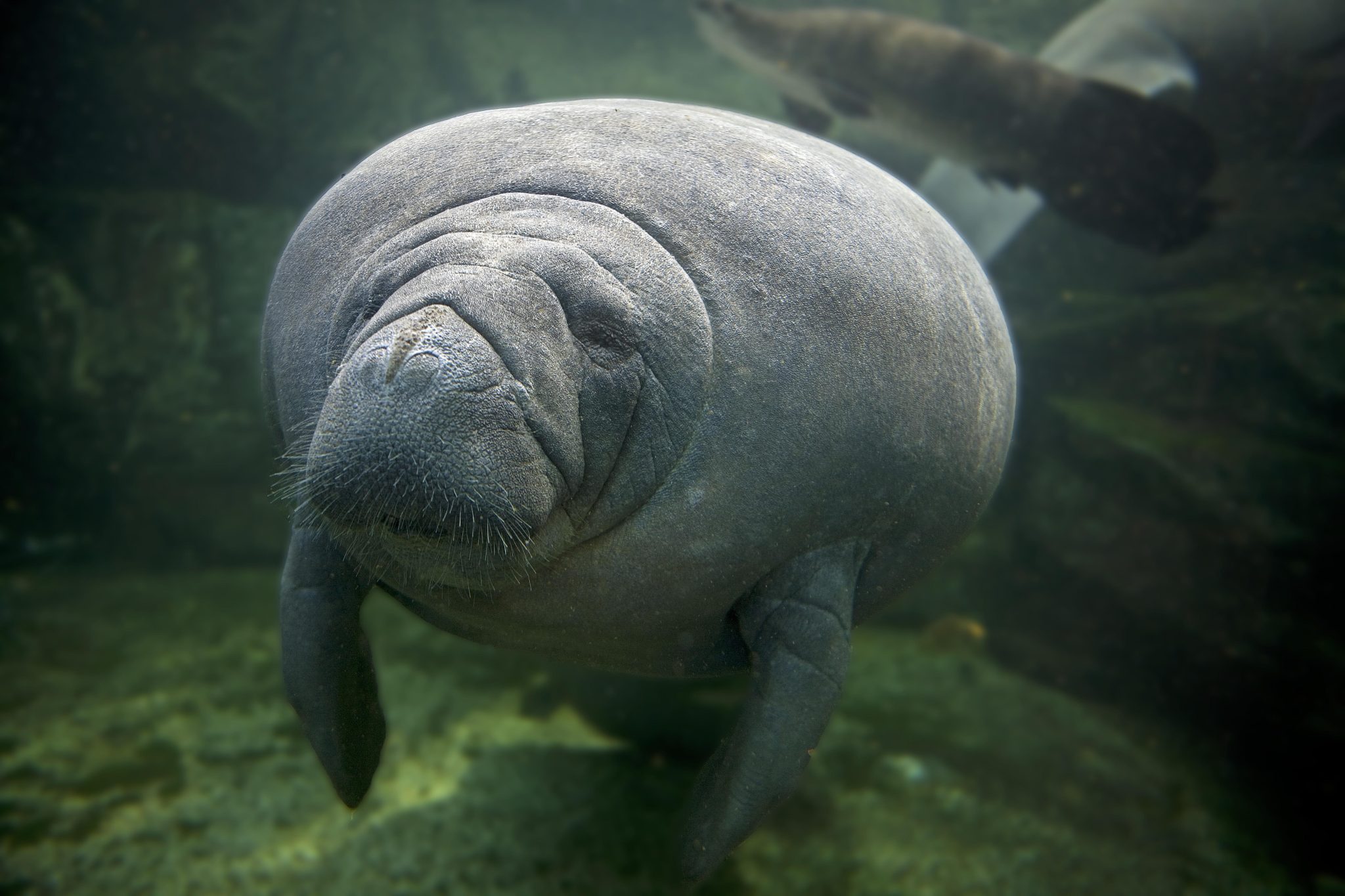
Manatee species, such as the African manatee and the Antillean manatee, continue to be poached by humans (Marsh et al., 2022). As a result, these species are difficult to observe in the wild and may adapt by foraging at night to avoid human encounters (Rycyk et al., 2021). This behavior could help explain why historical Florida manatee populations that were hunted by humans are absent from middens and rarely mentioned in historical accounts.
Further, the publication only briefly touches on the paleontological record and genetic evidence, which indicate that manatees have existed in Florida for a much longer period. Fossil and genetic evidence reveal a rich history of manatees in Florida. Manatees belong to the order Sirenia, which includes the Amazonian, African, and West Indian manatee species. While Sirenian fossils have been found globally, only Florida and the Caribbean contain specimens from every epoch over the past 50 million years (Reep and Bonde, 2006). The modern manatee, as we know it, emerged in the Caribbean about 2 million years ago (Domning, 1982).
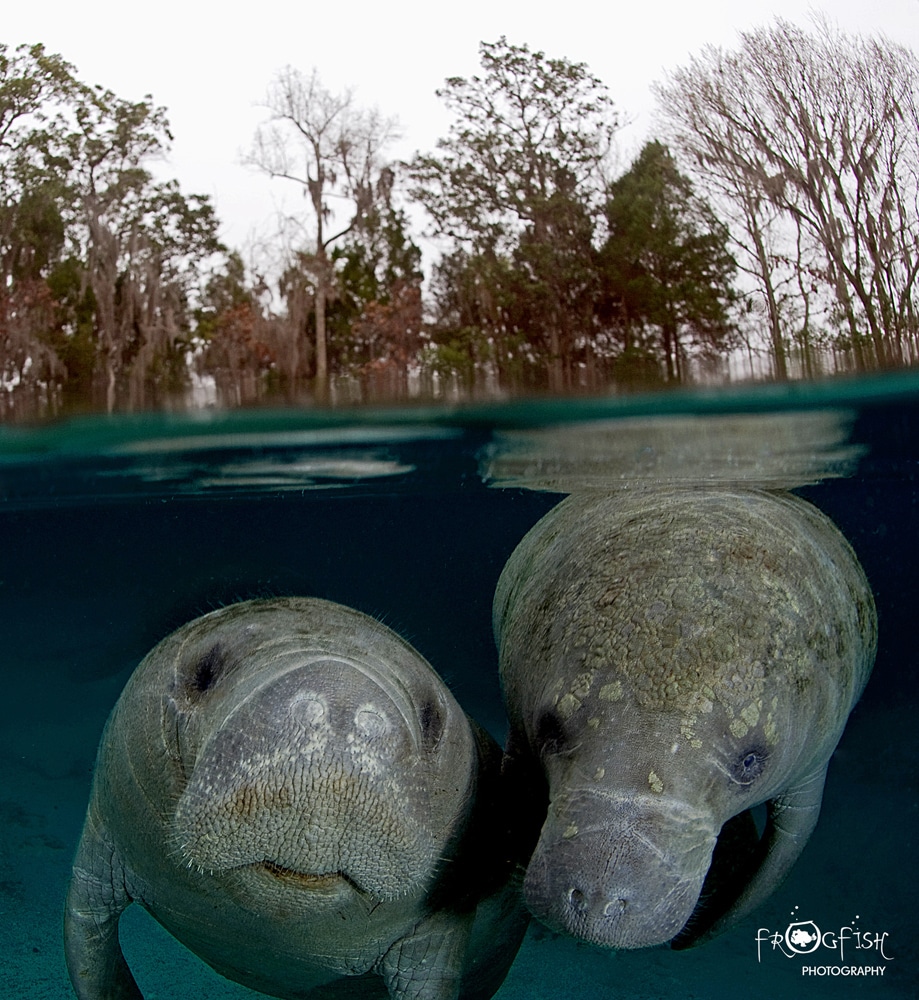
The evolution of manatees during the Pleistocene epoch provides valuable insights into how environmental changes shaped their distribution and genetic diversity. During the Pleistocene epoch (2.59 million to 11,700 years ago), there were roughly 20 cycles of long glacial periods (40,000–100,000 years) followed by shorter interglacial periods lasting around 20,000 years. At the start of these warmer periods, Caribbean manatees migrated northward with the warming waters (Reep and Bonde, 2006). Water currents and thermal barriers isolated these manatees from populations in Mexico and the Caribbean, leading to genetic divergence. Fossil evidence indicates that Trichechus manatus bakerorum lived in Florida and North Carolina about 125,000 years ago but did not survive the last glacial period, which began 100,000 to 85,000 years ago (Domning, 2005). This subspecies was eventually replaced by modern Florida manatees.
This evolutionary theory is further supported by genetic evidence. Research indicates that Florida manatees trace their evolutionary origins to Caribbean ancestors that migrated northward over the past 12,000 years (Garcia-Rodriguez et al., 1998). A 2012 study by Tucker et al. reinforces this theory, showing higher genetic diversity in manatees on Florida’s west coast compared to those on the east. Over time, core populations migrated northward, with some groups moving south and east along the Florida coastline before heading north along the Atlantic. This migration pattern left the west coast population with greater genetic diversity, while the east coast population retained only a smaller subset. These findings suggest that the founding population of Florida manatees—arriving approximately 12,000 years ago—originated along Florida’s southwestern coast, which became the center of the state’s manatee population (Reep and Bonde, 2006). The process of vicariance further supports this hypothesis; as geographic and ecological barriers emerged, they likely isolated the Florida manatee populations from their Caribbean ancestors. This isolation likely limited migration back and forth between regions, fostering the establishment of local populations in southwestern Florida.
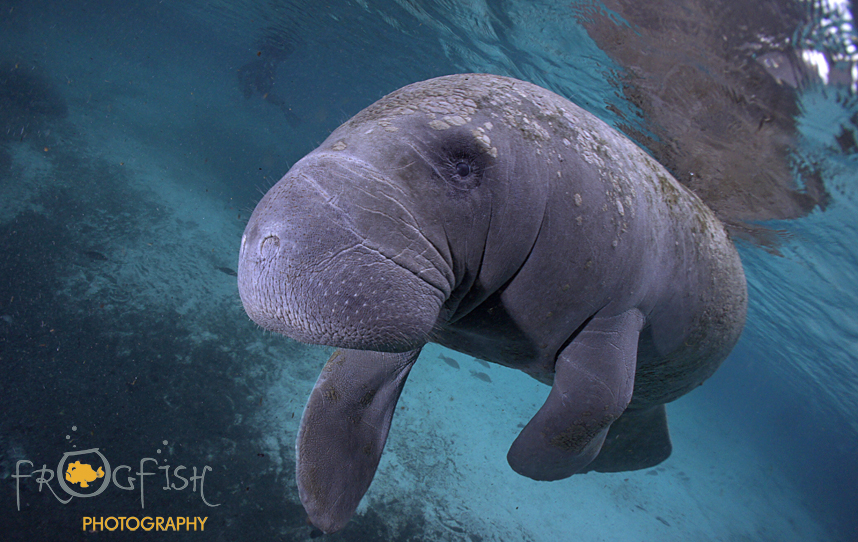
Manatees are not only a cherished symbol of Florida’s natural heritage but also a species with deep evolutionary and historical ties to the region. In sum, despite recent claims questioning their nativity, extensive fossil and genetic evidence confirms that manatees have been present in Florida’s waters for thousands of years, with ancestors dating back over 12,000 years. We agree with the authors of the published article that protecting these iconic creatures and their habitats is essential to preserving Florida’s unique ecological identity for future generations
Beth Brady is the Senior Science and Conservation Associate at Save the Manatee Club whose work focuses on manatee biology and conservation. She has her PhD from Florida Atlantic University and her Master’s in Marine Science from Nova Southeastern University.
-

 Gear Reviews1 month ago
Gear Reviews1 month agoGear Review: SurfEars 4
-

 Marine Life & Conservation2 months ago
Marine Life & Conservation2 months agoPaul Watson Released as Denmark Blocks Japan’s Extradition Bid
-

 Blogs3 months ago
Blogs3 months agoExperience Malta and Gozo in 2025: A Paradise for Divers and Culture Lovers
-

 Blogs2 months ago
Blogs2 months agoJeff Goodman Launches Underwater Moviemaker Course with NovoScuba
-

 News3 months ago
News3 months agoDive into Adventure: Limited Space Available for January Socorro Liveaboard Trip with Oyster Diving
-

 Blogs3 months ago
Blogs3 months agoThe Benefits of Underwater Photography Workshops
-

 Blogs3 months ago
Blogs3 months agoDiscover Curaçao with the Ultimate Dive Vacation Guide – 2024 DEMA Special Edition
-

 News3 months ago
News3 months agoScubaverse Acquired by Multiversal Media: A New Era of Expansion into Outdoor Travel and Wildlife Markets


